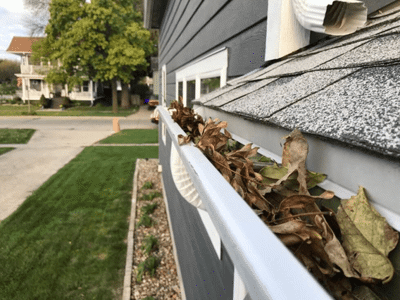Iowa and Minnesota have entered the time of year where the air conditioner is at full blast one day with the heat cranked the next. The cooler temperatures are a welcome transition from the summer heat. The shift in seasons means we are one step closer to a flu season with many unknowns about the implications of COVID-19. It’s important to be proactive with your home cleaning and disinfecting efforts. The change in weather is also a signal to perform some general maintenance to prepare your home for the winter.
You may be overwhelmed and anxious about the times ahead. Let’s focus on the steps you can take to protect yourself, your family, and your home from a global pandemic and the unpredictable elements of Mother Nature.
Clean & Disinfect Your House to Combat COVID-19
Wash your hands
Washing your hands with soap and water for at least 20 seconds or using a hand sanitizer containing at least 60% alcohol is the best way to protect yourself from germs according to the CDC. Use this as your first line of protection. Frequently wash your hands, especially after interacting with other people or objects. By doing so, you’ll help reduce the number of germs you spread to others and throughout your home.
Disinfect household products and surfaces
The Environmental Protection Agency has developed a list of disinfecting products expected to kill SARS-CoV-2, the virus that causes COVID-19. Focus on cleaning frequently touched surfaces such as doorknobs, light switches, tables, phones, keyboards, toilets, sinks, and remotes.
Put on a pair of gloves and begin by cleaning the surfaces and objects with soap and water to lower the number of germs. Once this step is complete, you can kill the germs by using a qualified disinfectant on the EPA’s list.
As with your hands, it’s important to implement frequent cleaning of the high touch surfaces in your home. The CDC recommends daily disinfecting of these surfaces and after each use if touched by someone who is sick.
General Home Maintenance
Your home will need attention in a number of other areas to be in proper condition for the season ahead. Let’s go over some basic tasks you should take care of early in the fall.
Change your air filter
A clean air filter plays a vital role in assuring optimal air quality. Some filters should be changed each month, others may last for several months. Each household and HVAC system will have different requirements for the frequency of filter replacement. Filters should be changed more often if you have pets or if someone in the house has allergies.
Be sure you use a filter that is suited for your HVAC system. Using an air filter that is too restrictive can cause your heating and cooling system to be overworked.
Have your HVAC system professionally inspected
A broken heating system is the last thing you need to be dealing with on a cold winter night. Schedule a professional inspection now to be sure your HVAC system is functioning properly. On-going maintenance will help eliminate unnecessary surprises and breakdowns.
Replace batteries in smoke and carbon monoxide detectors
Let this be a friendly reminder to replace the batteries on your smoke and carbon monoxide detectors. It’s easy to forget about these devices but they could save your life. Carbon monoxide is a gas with no smell or taste. Carbon monoxide can come from gas appliances and lead to poisoning.
Fire Prevention
Thoroughly clean your dryer vents
Simply cleaning off your dryers lint filter is not enough. It’s important to clean the dryer vents from time to time. Too much build-up of lint and debris can become a fire hazard for your home. There are many vacuum attachments available to help remove the excess lint. A thorough cleaning of the vent will be needed to eliminate the fire hazard. You can hire a professional for the task (and have them clean your air ducts for improved air quality while you’re at it).
Flood & Water Damage Prevention
Remove leaves and twigs from gutters and downspouts
The leaves changing color and dropping to the ground create a beautiful scene during the fall. Fallen tree leaves and twigs can backup your gutters and downspouts. If clogged, rainwater can pool and eventually lead to damage to the roof, siding, and foundation. Remove the debris that has collected in the gutters and downspouts. Flush the gutters and downspouts with water to assure a clear path.
Turn off exterior valves and store hoses
Empty any remaining water from your hoses and shut off exterior water valves. Store the hose in a dry place. Any water remaining in the pipes can freeze and expand, causing pipes to burst.
Caulk cracks in the foundation
Water that gets into the cracks of your foundation can also freeze and expand leading to complications in the foundation. Cracks may expand and lead to bigger issues later on. Seal foundation cracks with caulk.
Contact ServiceMaster by Rice for Professional Cleaning
Following these home cleaning and maintenance tips is a key to reducing your risk of disaster striking your home. Unfortunately, calamity has a mind of its own and does not announce its presence.
If you have found yourself needing disaster restoration for your home or business, contact the professionals at ServiceMaster by Rice. We have locations across the state of Iowa and in southern Minnesota. Find a location closest to you or give us a call.


